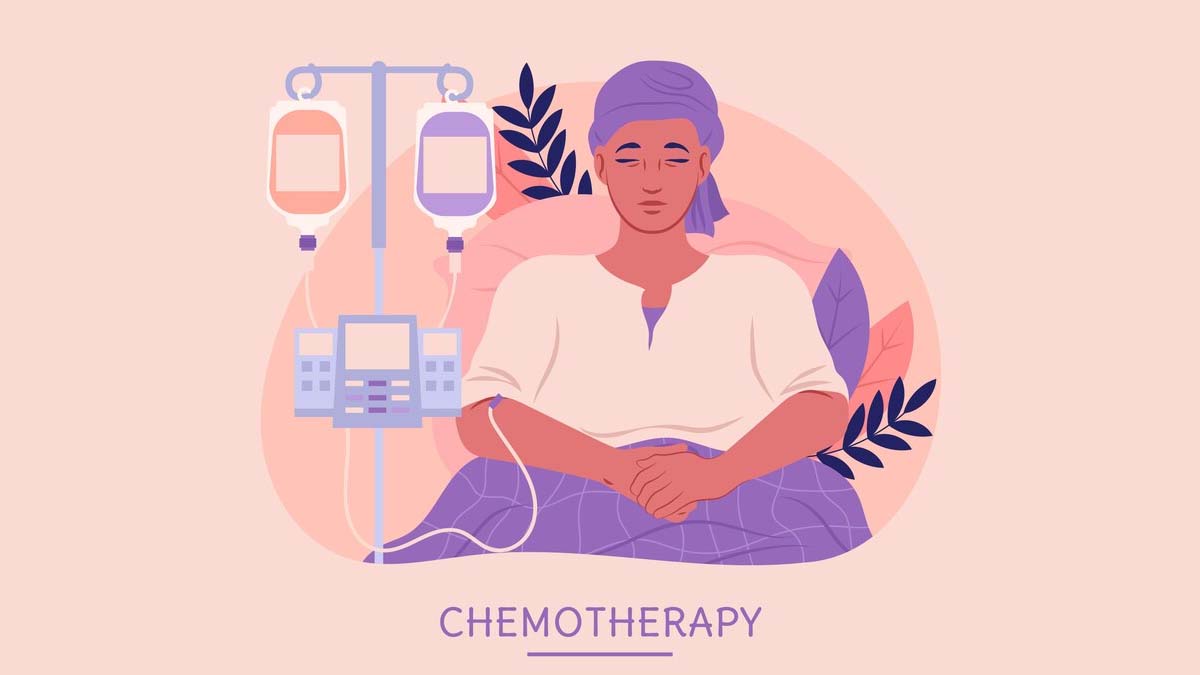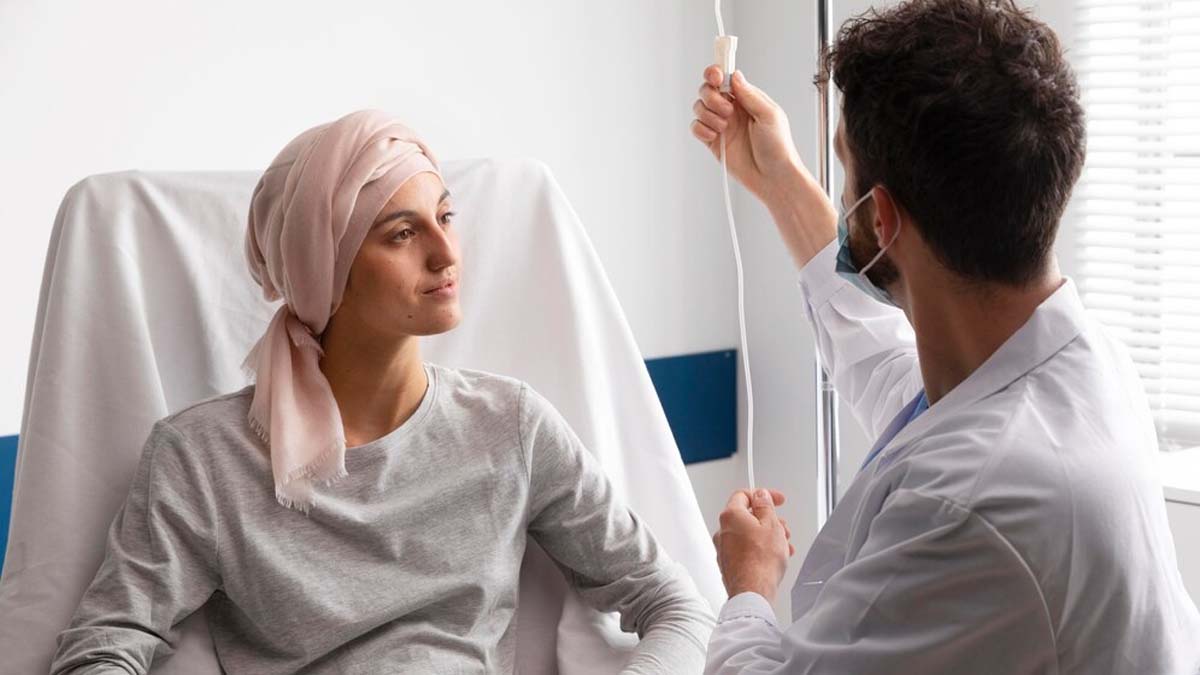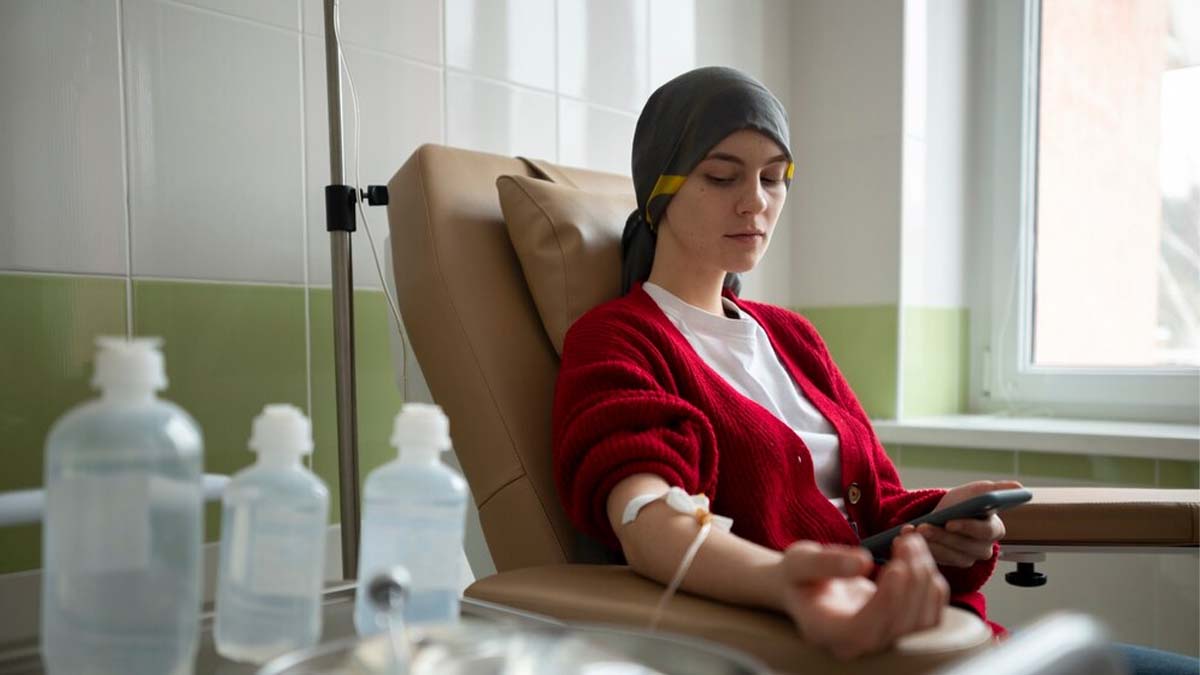
Chemotherapy refers to the use of medications to kill cancer cells. This cancer medication works by preventing cancer cells from growing, dividing, and proliferating.
Chemotherapy can be used to treat a wide range of malignancies. Chemotherapy may be referred to as normal chemotherapy, classic chemotherapy, or cytotoxic chemotherapy by your doctor.
Table of Content:-
Chemotherapy is a very effective and often life-saving treatment for many forms of cancer. While it is effective in combating cancer, it can also cause a number of side effects on our body.
Nausea and Vomiting
“One of the most well-known side effects of chemotherapy is nausea and vomiting. Medications known as antiemetics are often prescribed to help manage these symptoms. Patients are advised to take these medications as directed and to let their healthcare team know if the nausea and vomiting persist,” said Dr Ashok Vaid, Chairman, Medical and Haemato Oncology, Cancer Institute, Medanta - The Medicity.
Fatigue
“Chemotherapy can lead to extreme tiredness, which may last for days or weeks after treatment. It's crucial for patients to get plenty of rest, conserve energy, and consider light exercise or relaxation techniques to combat fatigue,” Dr Vaid added.
Also read: Natural Approaches you Can Try to Minimize Chemotherapy Side Effects
Hair Loss
Many chemotherapy drugs can cause hair loss, including hair on the scalp, eyebrows, and body. While this can be emotionally challenging, it's usually temporary, and hair often starts to grow back after treatment ends.

Anaemia
Chemotherapy can reduce the number of red blood cells, leading to anaemia. Symptoms may include fatigue, weakness, and shortness of breath. In some cases, patients may require blood transfusions or medications to manage anaemia.
Changes in Appetite and Taste
Some chemotherapy drugs can change a person's sense of taste and appetite. Patients are encouraged to eat small, frequent meals, stay hydrated, and explore various flavours and textures to find what is palatable during treatment.
Mouth and Throat Problems
Chemotherapy can cause mouth sores, dry mouth, and sore throat. Good oral hygiene practices and regular dental check-ups are crucial. Patients may also benefit from using special mouthwashes recommended by their healthcare providers.
Skin Changes
Skin may become dry, sensitive, or more prone to sunburn during chemotherapy. It's important to use gentle skincare products, stay hydrated, and protect the skin from excessive sun exposure.

Weakened Immune System
Chemotherapy can lower white blood cell counts, making patients more susceptible to infections. Frequent handwashing, avoiding crowded places during flu season, and following your healthcare team's guidance can help reduce the risk of infection.
Also read: Here is why depression may make chemotherapy less effective
Neuropathy
Some chemotherapy drugs can cause tingling, numbness, or pain in the hands and feet. Patients should promptly report any unusual sensations to their healthcare providers.
Emotional and Psychological Impact
Coping with cancer and its treatment can be emotionally challenging. Many patients benefit from counselling or support groups to help manage the emotional impact of chemotherapy.
Dealing with chemotherapy side effects is important for a patient's general well-being during cancer treatment. Patients must maintain open contact with their healthcare team, disclose any adverse effects promptly, and adhere to their advised ways for dealing with these issues. While chemotherapy can be physically and emotionally taxing, it is still an important tool in the battle against cancer, and breakthroughs in medical research are improving the management of its side effects.
Also watch this video
How we keep this article up to date:
We work with experts and keep a close eye on the latest in health and wellness. Whenever there is a new research or helpful information, we update our articles with accurate and useful advice.
Current Version